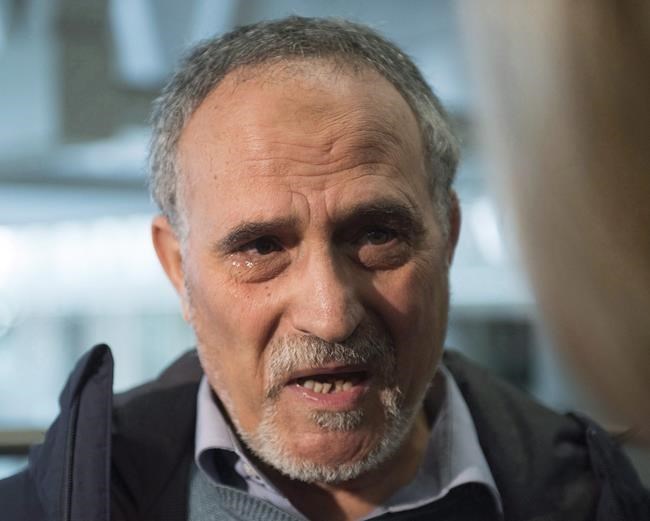MONTREAL — For Mohamed Labidi, the deadly attack in Quebec City Saturday night brought back memories of that cold January night in 2017.
Back then, he was president of the mosque in the provincial capital that was attacked by a gunman who murdered six worshippers and injured more than a dozen others.
"It's very sad, the events, it brings back memories," Labidi said in an interview Monday, regarding last weekend's sword attack in historic Old Quebec that left two dead and five injured. But despite the violence, Labidi said he still thinks Quebec City is peaceful.
Residents are questioning why their hometown has become the scene of two grisly attacks in the past few years. But despite their sadness, they say they won't let the events define them or their city.
The district's beauty may have been one of the reasons it was targeted, Mayor Regis Labeaume suggested Monday in a Facebook post. A 24-year-old man who police say travelled to the provincial capital from Montreal's north shore has been charged with two counts of first-degree murder and five of attempted murder.
Labeaume said the Halloween night attack brought back memories of the mosque murders of Jan. 29, 2017. At a press conference on Sunday, he said it felt like he was replaying an old film.
Jean Rousseau, the city councillor who represents the district where Saturday's stabbings took place, says the suffering and trauma in the neighbourhood are "palpable." The mosque attack in 2017 was already incomprehensible, he said. Now, he said he's left with an unanswerable question: "Why us?"
Violent crime is normally rare in Quebec's capital — in 2019, five homicides were reported in the city of roughly 540,000 residents. Old Quebec is better known for being a tourist destination in normal times, with its historic architecture and its role in Canada's history.
Rousseau said that because the neighbourhood is so symbolic — it's on the UNESCO World Heritage list — the violence there has deeply affected people across the province and the country.
"Quebec won't be defined by these two sad events," he said in an interview Monday, "but by its capacity to welcome and appreciate diversity."
Jean-Yves Duclos, the federal member of Parliament who represents the area, said the pandemic has already heightened people's sense of physical insecurity. People can't visit each other the way they used to and can't hug each other even at a time like this, he said, making it harder.
But Duclos said he thinks the city will come together. It took time, he said, but eventually, in the aftermath of the mosque shooting, the people of Quebec City became "stronger and more united."
"It's a city where people have a very strong sense of security, and also a strong sense of proximity and solidarity. It's a city where people live well and enjoy each other's company," he said in an interview Monday.
Like Labeaume, Duclos said he wondered if the suspect targeted the old city for symbolic reasons.
"It's a very symbolic, very historical place — still a very beautiful place," Duclos said. "It's strong both in the history and in the present of Canada."
This report by The Canadian Press was first published Nov. 3, 2020.
———
This story was produced with the financial assistance of the Facebook and Canadian Press News Fellowship.
Jacob Serebrin, The Canadian Press

